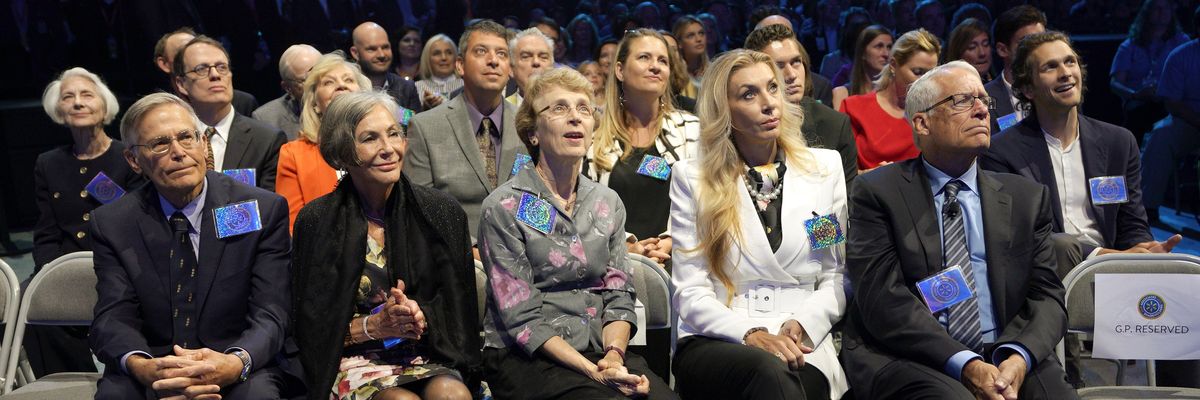The Swiss bank UBS released a report Thursday showing that a massive transfer of wealth from billionaire business founders to their heirs is underway and accelerating, with trillions of dollars in assets moving from those who accumulated fortunes through entrepreneurship to family members whose vast riches are owed to the simple accident of birth.
In the 12-month period between April 2022 and April 2023, newly created billionaires acquired more wealth through inheritance than entrepreneurship for the first time since UBS began studying billionaire wealth trends in 2015. The bank, a friend of the super-rich, said that 53 heirs inherited nearly $151 billion in wealth during the study period, exceeding the $140.7 billion amassed by billionaire entrepreneurs.
"This year's report found that the majority of billionaires that accumulated wealth in the last year did so through inheritance as opposed to entrepreneurship," Benjamin Cavalli, head of strategic clients at UBS Global Wealth Management, said in a statement. "This is a theme we expect to see more of over the next 20 years."
The latest edition of the Billionaire Ambitions Report estimates that the number of global billionaires rose by 7% during the one-year period analyzed by UBS, up from 2,376 to 2,544. The U.S. alone had 751 billionaires as of April 2023, 20 more than it had in 2022.
After falling in the wake of the coronavirus pandemic—during which billionaire wealth soared as millions died across the globe—billionaires' collective net worth "recovered by 9% in nominal terms from USD 11.0 trillion to USD 12.0 trillion," UBS found.
UBS estimates that more than 1,000 billionaires are over the age of 70 and poised to hand a combined $5.2 trillion down to their heirs over the next several decades, perpetuating inequality that is eroding democracies and fueling social uprisings worldwide.
"While this great wealth handover has long been anticipated," UBS said, "data suggests that it is now gathering momentum."
"A new, powerful, and unaccountable aristocracy is being created in front of our eyes."
Chuck Collins, director of the Program on Inequality and the Common Good at the Institute for Policy Studies (IPS), told Common Dreams that "this is how wealth dynasties are formed."
"The so-called 'self-made' billionaires invest in 'wealth defense' to pass as much wealth to future generations within their families," he said.
Collins argued that this ongoing wealth transfer "should be an occasion for substantial inheritance taxes, but given the porous and weak state of such taxes, we're seeing dynastic oligarchies grow."
"Without robust wealth and inheritance taxes, these intergenerational concentrations of wealth and power will grow," said Collins. "The children and grandchildren of today’s billionaires will dominate our future politics, economy, culture, and philanthropy—with huge billion-dollar legacy foundations. It is true that a small segment of the next generation will redeploy and redistribute some of this wealth to more socially positive ventures and organizations. But at this point, this is a tiny percent and not a substitute for a progressive tax system where the wealthy pay their fair share of taxes."
The UBS report notes that billionaires with inherited wealth "seem more reticent" than first-generation billionaires to pledge their fortunes to philanthropy, which the ultra-rich often use to avoid taxes.
According to UBS, just under a quarter of first- and later-generation billionaires said they are concerned about "developments in taxation," an indication that they don't believe world leaders will heed growing global calls for new taxes targeting the fortunes of the mega-rich and their offspring.
Oxfam International observed earlier this year that two-thirds of countries don't have any inheritance taxes and half of the world's billionaires live in those countries, allowing them to pass huge wealth down to future generations tax-free.
"A new, powerful, and unaccountable aristocracy is being created in front of our eyes," the group said.

